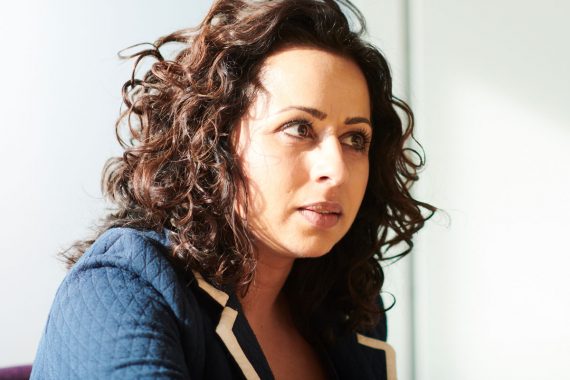NHS England’s top GP has urged patients aged 50-69 to come forward for their Covid jab, while GPs on the ground told Pulse some 50-year-olds displayed ‘apathy’ towards having the vaccine.
The prompt, made this weekend by primary care director Dr Nikki Kanani, comes as the BMA last week said it would back GP-led vaccination sites which decided to give spare doses to under-50s.
Some NHS England-run mass vaccination centres have also invited people aged in their 40s, despite this cohort falling into phase two of the vaccination programme, which has not yet officially launched.
Over 25 million people have now been vaccinated in England – and over 30 million across the whole of the UK. In addition, over 2.5 million people have now had their second dose.
Three-in-four people aged 50-54 have had a vaccination since being invited earlier this month, while the NHS has achieved vaccine coverage of 95% in people aged 60 and over.
NHS England said the ‘focus’ is now to ensure ‘absolutely everyone’ in the most at-risk cohorts gets vaccinated ahead of the 15 April target to complete phase one of the vaccination programme.
Dr Kanani said: ‘The NHS in England has now vaccinated 25 million people which is an unbelievable achievement by NHS staff across the country, who have continued to work at speed.
‘At the same time as increasing second doses week on week, the NHS is reaching out to those 50-69 year-olds who haven’t yet taken up the offer to be vaccinated.
‘If you are one of those people yet to book a first dose, please come forward and get your life-saving Covid-19 vaccine which will not only protect you but those around you.’
NHS England also urged people not to ‘forget’ to have their second doses, to ensure they are as protected as possible.
Dr Nick Merrifield, a PCN clinical director in Kingston, south London, told Pulse that there was ‘definitely a drop-off’ in take up of the vaccine as younger patients became eligible.
In his experience the most marked drop off was in the 50-55 cohort, where his area has seen an uptake of ‘maybe 65-70%’
‘So it seems in the decade of your 50s it’s a bigger factor [and], obviously, the worry is that we’ll get to the 40s group and see another drop off down’, he told Pulse.
Dr Merrifield said he doesn’t think this is solely down to vaccine hesitancy but also the fact of younger patients having work commitments which get in the way.
‘Actually, there are more people who are working, who are less flexible at the moment. There are more going back into work maybe than they were than a month ago – going forward, that will be more of an issue,’ he said.
More worryingly, he said, some people in their early 50s had displayed ‘apathy’ towards getting the vaccine.
He said: ‘There are more people, interestingly, in their early 50s who seem to be slightly apathetic – which seems incredible considering what we’ve been through. People almost think it’s not really relevant to them: “Oh give it to the old people, they might get really ill, but I’m ok, don’t worry about me, I don’t think I need it, I take my vitamins and eat healthily”.
‘They’re not adamant anti-vaxxers who think it’s going to kill them, but they don’t seem that exercised about the whole thing. It may be that that’s just what they’re telling us, but their attitudes on the phone when we’re calling them is that they can’t really be bothered, which is quite interesting.’
Dr Ollie Hart, a PCN clinical director in Sheffield, told Pulse that ‘the very old were very keen to have the vaccination, so there’s a little more hesitancy’. But he added that there were ‘people less keen in all age groups who are much harder to chase’.
He said: ‘You get to the bottom of each cohort and there’s always a hardcore 10 or 15% who are just really hard to get in. We often work really hard with them, but it can take three or four phone calls to talk them around.
‘That’s what primary care’s really good at – people we know well and people that trust us, we’re able to give advice. The mass advertisements and call-ups don’t really work. I think general practice has surprised everybody with its willingness to rise up to the game.’
It comes as the Government announced that the milestone of 30 million first doses was reached on Friday last week, which means 57% of the UK adult population is now vaccinated.
Despite the expected dip in supply, due to start today, the Government reiterated that it is ‘on track’ to offer vaccines to everyone in cohorts 1-9 by 15 April and all UK adults by the end of July.
Vaccines Minister Nadhim Zahawi said: ‘The NHS, GPs, pharmacists and volunteers will continue to do everything they can to vaccinate people as quickly as possible and I’m immensely proud of their tireless efforts to reach this milestone so quickly.’
The Government has also said the Moderna vaccine is due to arrive in the UK ‘in the spring’, although it has not said how many of the 17 million total doses purchased will become available within that time frame.
Pulse October survey
Take our July 2025 survey to potentially win £1.000 worth of tokens














